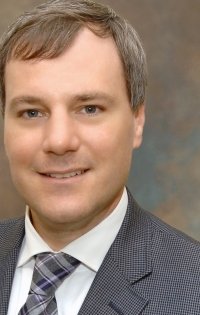By: Chris Tuell Ed.D., LPCC-S, LICDC-CS
Clinical Director of Addiction Services Lindner Center of HOPE
Assistant Professor, Department of Psychiatry & Behavioral Neuroscience University of Cincinnati College of Medicine
Fifty years ago, I was six years old. My family, like many families of the day, subscribed to Life magazine. On the cover of the magazine for the week of September 16, 1966 was a picture of Sophia Loren. The Hollywood starlet was portrayed wearing a black see-through lacy dress that covered all the necessary parts, and covered all the necessary standards for 1966. But the picture left an image upon my brain that I can easily recall to this day.
Fifty years later, digital pornographic images are now easily accessible. The Internet has made it possible for thousands of images and videos to be accessed within seconds. The Internet has made it available for instant digital infidelity to occur. Such images and encounters can easily be accessed on any smartphone, tablet, and computer.
So how concerned should we be as a society? Do we accept this dark digital domain as a part of our technological culture? How harmful can pornography and digital infidelity be? Is it possible that sexual images and/or compulsive sexual behaviors reside within the same realm as problematic alcohol and drug use? The answer is plain and simple. It does. Pornography and cybersex can become addictive. In the long run, this behavior rewires the brain, and can lead to abusive and destroyed relationships for men and women.
Sixty-eight percent of young men and 18% of young women view pornography at least once a week, and those numbers are growing. A sexual addictive epidemic is on the rise, not only because of easier access, but also the lack of information people have had on the negative and harmful effects associated with this addictive behavior.
Many researchers and clinicians in the field of mental health no longer discriminate between behavioral addictions (i.e., pornography, sex, gambling) and chemical addictions (i.e., alcohol, drugs). Simply stated: The brain doesn’t care. The brain doesn’t care whether you pour it down your throat, place it in your nose, see it with your eyes, or do it with your hands. Pornography and sex, along with other addictions, flood the brain with dopamine and make the recipient feel good. They help you to escape, as you seek the behavior over and over again. Over time, as more dopamine is released, the individual will begin to feel the effects of this neurochemical less and less. This leads one to search for more graphic images, increase high-risk sexual behaviors, escalating the addictive behavior in order to obtain the desired effect.
Researchers indicate that nearly 80% of individuals who have an alcohol or drug issue will also have a mental illness issue as well. This is the rule rather than the exception. So what is the relationship that pornography, cybersex, and other addictive behaviors have with mental illnesses like depression and anxiety? This could be better understood by the CUBIS model, an acronym that represents five areas that I believe demonstrates this relationship between addiction and mental illness.
Chemical Imbalance
Within the field of psychiatry a basic premise is that some individuals may have issues of mental illness as a result of a chemical imbalance. When an individual experiences challenges of depression and/or anxiety, for example, particular neurochemicals within the brain may not be producing at desired levels, resulting in symptoms of mental illness (e.g., depression, fear, anxiety, paranoia). This is where medications can be helpful. However, addictive behaviors like sex and pornography, as well as alcohol, drugs and gambling, can also serve to temporarily regulate this imbalance, resulting in the individual feeling better and distracting his or herself with undesirable and destructive behaviors.
Unresolved Issues
For many, issues of trauma, abuse, grief, loss and/or abandonment, can lead some individuals to seek out ways to escape and numb one’s self from the aforementioned mental health challenges. Whenever these problems bubble up to the top, the individual doesn’t want to think about or feel the emotions associated with these particular issues. Cybersex and pornography, like other addictive behaviors, serve a purpose in suppressing these thoughts or feelings and help the individual to escape, distract, or forget about mental health concerns.
Beliefs (that are distorted)
We all grow up with a belief system. This system consists of the messages we receive from our parents, relatives, neighbors, and society in general. It’s how we see the world, and how we see ourselves. But what if some of these beliefs are untrue, irrational, or distorted? What if one had the belief that the only way to be social is to have a drink, or the only way to relax is to smoke a joint? These beliefs, of course, are untrue. Anyone is able to relax and become social without substances. But how do these distorted beliefs materialize with sexual acting-out behaviors? Typically within healthy relationships, the initial element is one of friendship. This is usually followed by trust, increased commitment, and closeness through intimacy (love), and then sex. But for some, the way one develops friendship, establishes trust, makes commitment, is by being sexual. Sex provides a way to meet his or her unmet needs. One’s distorted and irrational beliefs may perpetuate this unhealthy cycle of addiction.
Inability to Cope
Think for a moment of someone who has been a best friend. A best friend is someone that you can always count on, and is always reliable, 24/7. This is the same relationship that the addict has with pornography, sex, and other addictive behaviors. Our digital world has made cybersex and pornography readily available 24/7. It is accessible during good times and bad. It always delivers what it promises to do when reality can be so unpredictable. In addition, the area of the brain affected by addiction is the same area where meaningful relationships are developed. One’s addiction becomes on par with his or her spouse, children, parents, and friends. Sometimes, unfortunately, it becomes number one. For the addict with mental illness issues, in order to get well, I have to give up my best friend.
Stimulus-Response Relationship
When it comes to the brain and addiction, there are two main areas of the brain which play an important role with the other: the prefrontal cortex (PFC) and the midbrain. The prefrontal cortex is the executive functioning part of the brain. The PFC is where decision-making, morality, and personality exist. Everything about who one is as a person resides in the PFC. The main role of the midbrain is to reinforce behaviors which are necessary for the organism to survive. The midbrain does this by the release of certain neurochemicals, especially dopamine. Dopamine provides pleasure. Behaviors that are necessary for survival are reinforced with dopamine. If food and sex were not pleasurable, humankind would have expired thousands of years ago.
The midbrain reinforces behaviors necessary for our survival by the release of the pleasure chemical, dopamine. But addictive behaviors also trigger dopamine. Behaviors such as sex and pornography, as well as other addictions (drugs, alcohol, gambling) do this too. When dopamine is released from the midbrain and begins to flood the PFC, there is a shutting down of the rational, logical, decision-making part of the brain. The midbrain overrides the PFC which now no longer functions correctly. A hijacking of the brain’s reward system occurs. When this happens, the memory neurochemical Glutamate is released and informs the midbrain: “Don’t forget this! Go out and get it!”
The brain now believes and remembers that addictive behaviors are essential for survival. Logically, one knows that one does not need alcohol, drugs and other addictive behaviors to survive, but the brain does not realize this. As a society, we have unfortunately responded and treated addiction as an issue of morality, a weakness, a lack of will power, a character flaw, an addictive personality, sociopathy, etc. Our society has unfortunately responded to addiction with shame, guilt, blame, coercion, and incarceration for many years. This old approach has and continues to be a failure. Addiction starts earlier and deeper within the brain and hijacks its reward system by believing the addictive behavior is necessary for survival.
Treatment
What should the treatment be for these issues? When it comes to pornography, gambling, alcohol, heroin, or in fact any addictive behavior, a strong correlation exists with mental illness. Treatment approaches must include integration of the co-occurring disorders. For years substance use disorders and mental illness have been treated separately from one another. Unfortunately, this view continues in many treatment communities. Research indicates that an effective treatment model of addiction must integrate with the individual’s mental illness issues. If only the addiction is addressed and not the mental illness, both will get worse. Likewise, if only mental illness is treated and not the addiction, both will get worse.
The CUBIS model provides a template for treatment:
- Medication management: For individuals who experience a chemical imbalance, medication management can be beneficial in assisting the individual in regulating issues of anxiety, mood, and depression. The development of medication-assisted treatment for those in recovery has also proven to be therapeutically beneficial for individuals suffering from addiction.
- Psychotherapy: Therapy serves as a means to relieve symptoms, resolve problems in living and/or seek personal growth. The utilization of psychotherapy can be helpful in assisting individuals with unresolved issues of trauma, abuse, grief, loss, abandonment, etc.
- Cognitive-behavioral therapy: Individuals experiencing issues of irrational, maladaptive, or distorted beliefs may benefit from cognitive-behavioral therapy. This therapy approach focuses on issues of thoughts, perceptions, attitudes and actions in choosing healthier behaviors.
- Skill development: For individuals who need to find better ways of coping, developing skills to assist in the regulation of mood and anxiety can be helpful. These skills may consist of various ways of coping including mindfulness, meditation, community support groups, exercise, dialectical behavior therapy, spirituality, etc.
- Education: Knowledge serves as a means of increasing understanding and awareness for individuals and family members in how addiction impacts the brain. This level of education and awareness can hopefully reduce elements of shame, guilt and blame of the individual who suffers from addiction and mental illness. Individuals suffering from addiction may lie, cheat and steal, but bad acts do not necessarily mean bad actors.
Final thoughts
For this clinician, a simple cover from a 1963 Life magazine has left an imprint. It remains unclear what the long-term effect of exposure to pornography and digital images have upon the brain and especially on the developing brains of young people. The Internet and the digital world have made many aspects of our lives more productive, informative, connected and creative. However, in today’s world of social media, chat rooms, digital pornography, interactive webcams, instant messaging, “adult friend finder” apps and sexting, our digital world also provides more destructive means to escape from life stressors, depression, anxiety and all other forms of mental illness. Individuals suffering from mental illness may be easily drawn into other means of regulating mood, thoughts, and behaviors by high-tech addictive behaviors. No longer can humanity afford to turn a blind eye as men, women, and children are pulled into the seductive charms of the dark side of the digital world. There is nothing romantic about pornography. Instead, it promotes an unrealistic and unhealthy view of relationships and true intimacy.









